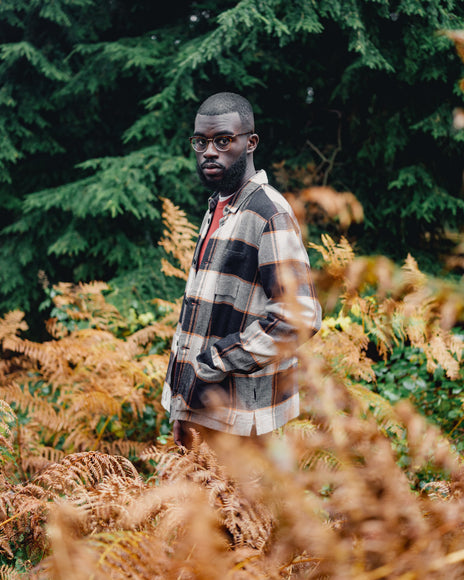Stepney Workers Club | Socks
Named after founders Simon See and Roger Pereira’s personal affiliation with the old Stepney Workers Sports Club, an anti-facist and anti-war club established in the ‘20s, East London’s SWC emerges relevant in the modern world with a fresh and forward-thinking ‘Freedom of Sport, Freedom of Thought’ mentality that commands a liberal-thinking movement across the contemporary market and modern-day society. Mastering the notion of genre-less design influenced greatly by free-spirited subcultures and the rise in unisex styling, Stepney Workers Club hosts an all-inclusive energy that celebrates traditional sports and workroom footwear silhouettes hailing from the UK’s industrialised ‘70s, ‘80s and ‘90s era.
Led by their iconic handshake logo, a representative design influenced by unrestrained inclusivity, the unified brand remains famed for their low-collared Dellow and high-rise Varden silhouettes, whilst the brand’s innovative use of fabrics such as cotton-drill canvas, oversized thick-wale corduroy and nylon Cordura combine to provide a durable approach toward the demands of modern-day living. Stepney Workers Club t-shirts, sweaters and socks remain true to the brand’s simplified yet structured SWC aesthetic, whilst the brand’s choice use of understated colourways and chunky-soled constructions pays homage to the British footwear collective’s working men’s club societal lineage.
Named after founders Simon See and Roger Pereira’s personal affiliation with the old Stepney Workers Sports Club, an anti-facist and anti-war club established in the ‘20s, East London’s SWC emerges relevant in the modern world with a fresh and forward-thinking ‘Freedom of Sport, Freedom of Thought’ mentality that commands a liberal-thinking movement across the contemporary market and modern-day society. Mastering the notion of genre-less design influenced greatly by free-spirited subcultures and the rise in unisex styling, Stepney Workers Club hosts an all-inclusive energy that celebrates traditional sports and workroom footwear silhouettes hailing from the UK’s industrialised ‘70s, ‘80s and ‘90s ... More >
